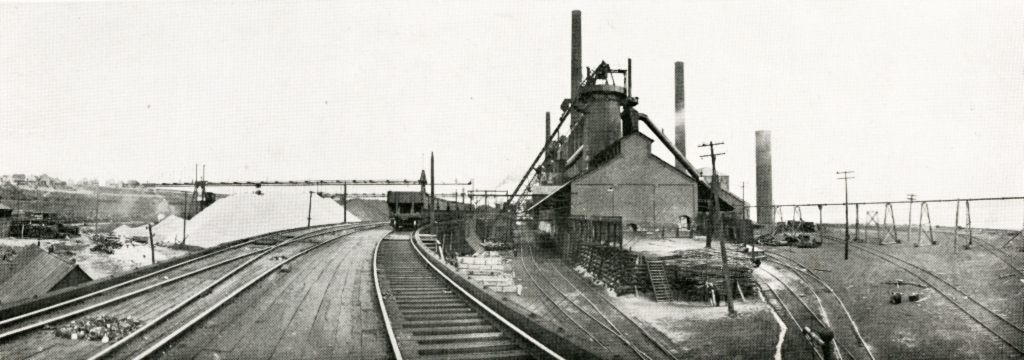
CCL member Dr Sean O'Brien is running a four-part lecture series for the 87 Press on the Marxian critique of political economy, exploring what it can tell us about the twenty-first century—an historical moment marked by deindustrialization, economic stagnation, growing labour superfluity, and a political landscape in which the figure of the worker no longer occupies the central space it once did.
As Sean writes in the introduction to the lecture series, we’re quite far from the world in which Marx lived and wrote, a world defined by the development of large-scale industry, a growing industrial working class concentrated in factories, and the rising power of the workers’ movement. Since then, much has changed economically and politically, a fact made most visible perhaps in the collapse of actually existing socialism. But if the American political scientist Francis Fukuyama declared in the 1990s the ‘end of history’ and the triumph of Western liberal democracy—exemplified for Fukuyama in the end of the cold war and the globalization of the free market—recent decades have witnessed not only a series of devastating economic crises, but also a surge of popular interest in Marx and a renewed scholarly interest in the work of Marxist theory. And this return to Marx gives Humanities students and scholars a chance to read Marx’s work with fresh eyes.
The series will open with an overview of Marx’s method and the some of the core categories of his critique before turning to consider theories of real abstraction, questions of geopolitical economy and the history of the capitalist class relation. We’ll explore the relationship between cycles of accumulation and cycles of struggle, concepts such as impersonal compulsion and form-determination, and the difference between what has been called traditional or orthodox Marxism and a more esoteric reading of Marx that, in the Anglo-American sphere, has come to be known as value-form theory.
Below is the first lecture in the series:
The idea behind the series is basically to offer a public-facing, para-academic introduction to Marx for Humanities students and scholars working in one facet or another of contemporary studies who might be familiar with Marxist literary or aesthetic theory but haven’t yet had a chance to actually engage much with Marx himself and the critique of political economy in particular. And so, over the course of the lectures, we’ll tackle some pressing questions for people who work and study in the Humanities and who are interested in a Marxism for the twenty-first century. For instance, what does the end of growth mean for the future of work? How should we think about the relationship between production and circulation, or the regularity of financial crisis? How might Marx’s concept of a surplus population inform theories of racial blackness and antiblack racism? What insights might Marx’s critique of value offer the feminist critique of social reproduction? What does the decline of the workers’ movement imply for an anti-capitalist politics today?
Sean's second lecture in the series explores an 'esoteric' current of Marxian thought rooted in the critique of value and distinct from the ‘exoteric’ Marx of traditional Marxism. Whereas classical political economy takes for granted capitalist forms such as value, labour, the commodity and money, Marx insists on the historical specificity of a social process in which labour is abstracted in order for commodities to be exchanged as values. This critical aspect of Marx’s work, however, was largely neglected by traditional Marxists, who tended – like classical political economists – to treat capitalist forms as natural and transhistorical features of human society. Drawing on Marx's analysis of the value-form, this lecture offers an overview of the esoteric Marx and considers the implications of his critique for theories of domination, abstraction and crisis.
Below is the second lecture in the series:
Here's lecture 3 on "The History of Accumulation":
This lecture pivots from an abstract analysis of capital at its ideal average to explore the concrete history of capital accumulation over its longue durée. Drawing primarily on the work of Robert Brenner and Giovanni Arrighi, we'll look at the accounts they each offer of the historical origins of capital as well as its more recent restructuring in the late twentieth century, before turning to consider possible future trajectories of capital accumulation on a global scale with a focus on China. The lecture concludes with a discussion of the political implications of economic downturn for the workers' movement and the question of whether we now find ourselves in a Second Gilded Age, as a number of commentators have suggested, or if this is in fact something new.
And, finally, here is the fourth and final lecture in the series on "The Class Relation":
This fourth and final lecture of Marx After Growth examines the capitalist class relation: what it is, how it's reproduced, and how the dynamics of its reproduction have important implications for how we conceive of the production of gender, the ascriptions of race, and the shifting horizons of cycles of struggle, especially as the reproduction of the class relation is thrown into crisis in the late twentieth century. Working first through Marx's account of simple reproduction, the lecture then pivots to explore the Marxist feminist critique of social reproduction, before moving to consider the racialization of unemployment and the political significance of riot in a low-growth economy.
For more information on the lecture series, visit:
https://www.the87press.com/post/marx-after-growth-1-an-introduction-of-marx-s-critique-sean-o-brien

Featured image "The Blast Furnaces" by The Beacon Institute shared under a CC BY-NC-ND license

Recent Comments